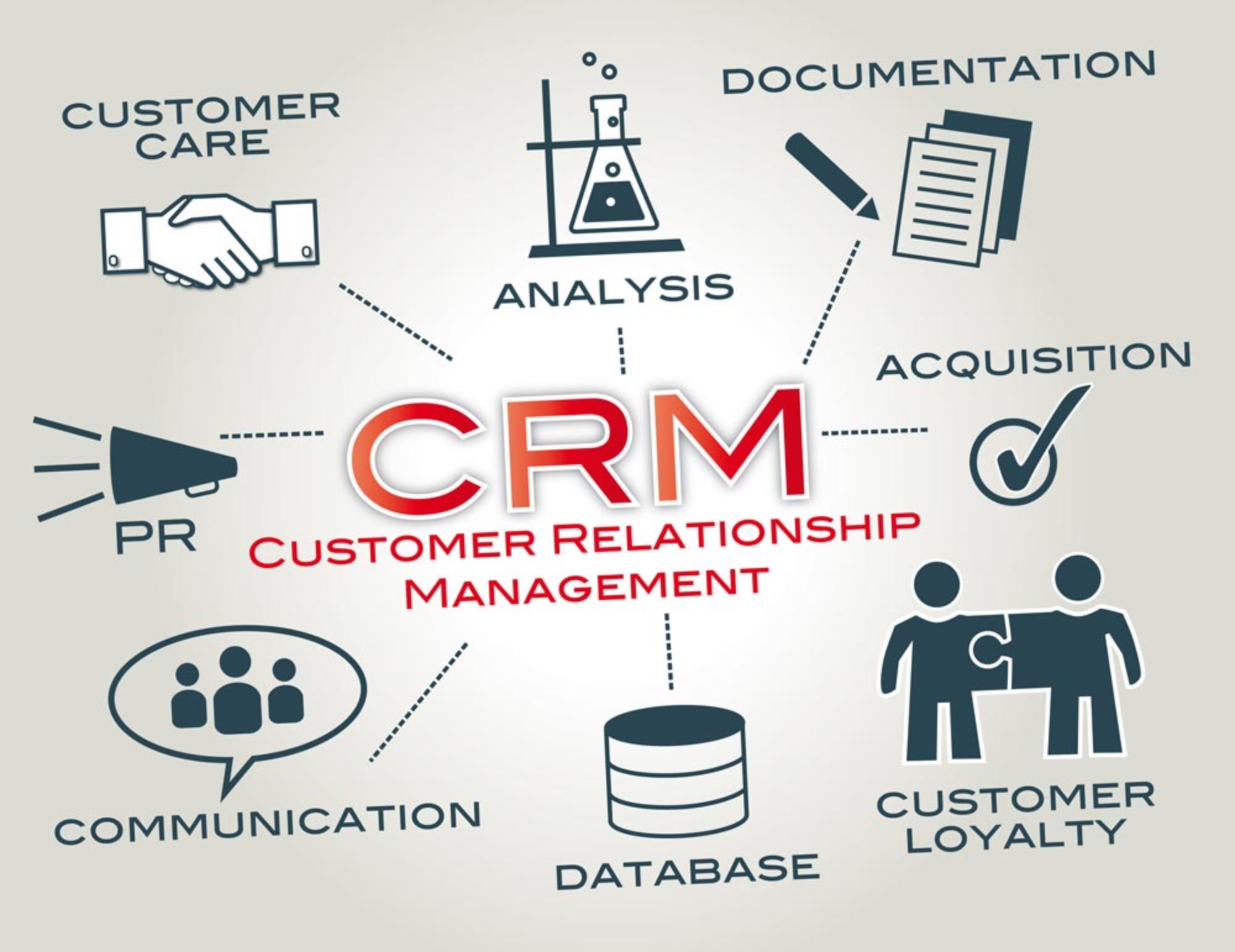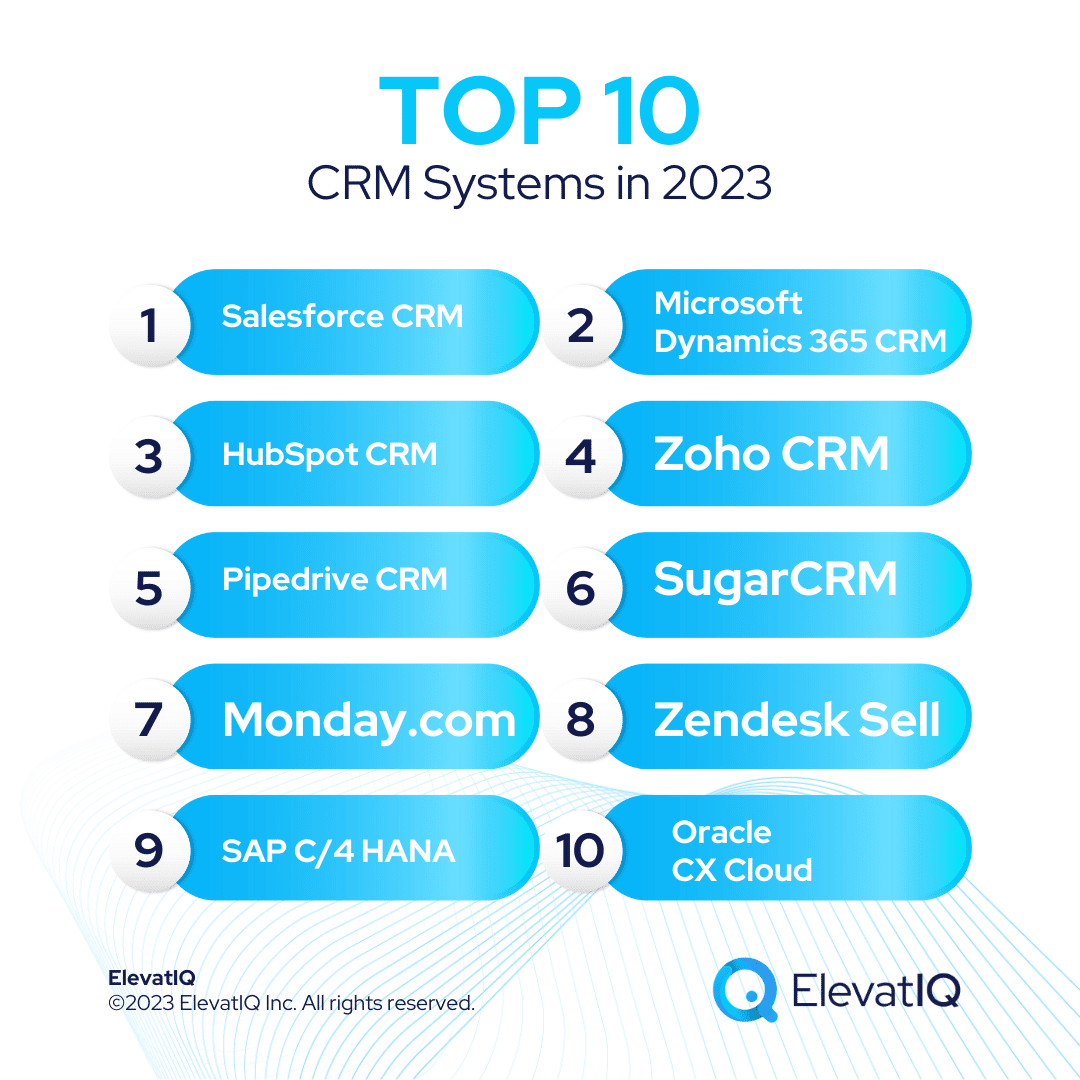In today’s competitive business landscape, the best CRM for medium business is an essential tool for streamlining operations, boosting sales, and enhancing customer relationships. This comprehensive guide will provide you with the knowledge and insights necessary to make an informed decision about the right CRM for your organization.
The second paragraph provides a more in-depth look at the benefits of using a CRM for medium-sized businesses, including improved customer management, increased sales productivity, and enhanced marketing efficiency.
CRM Software Overview
Customer relationship management (CRM) software is a tool that helps businesses manage their relationships with customers. It provides a central repository for customer data, including contact information, purchase history, and support interactions. CRM software can help businesses track customer interactions, identify opportunities for upselling and cross-selling, and provide better customer service.
Benefits of Using a CRM for Medium-Sized Businesses
There are many benefits to using a CRM for medium-sized businesses. Some of the most important benefits include:
- Improved customer service:CRM software can help businesses provide better customer service by giving them a complete view of each customer’s history with the company. This information can be used to resolve customer issues quickly and efficiently.
- Increased sales:CRM software can help businesses increase sales by identifying opportunities for upselling and cross-selling. It can also help businesses track customer interactions and identify patterns that can be used to develop more effective marketing campaigns.
- Improved efficiency:CRM software can help businesses improve efficiency by automating tasks such as data entry and customer follow-up. This can free up employees to focus on more important tasks.
Popular CRM Software Options
There are many different CRM software options available for medium-sized businesses. Some of the most popular options include:
- Salesforce:Salesforce is a cloud-based CRM software that is used by businesses of all sizes. It is a powerful and feature-rich CRM that offers a wide range of features, including customer management, sales force automation, and marketing automation.
- HubSpot:HubSpot is a cloud-based CRM software that is designed for small and medium-sized businesses. It is a user-friendly CRM that offers a wide range of features, including customer management, sales force automation, and marketing automation.
- Zoho CRM:Zoho CRM is a cloud-based CRM software that is designed for small and medium-sized businesses. It is a cost-effective CRM that offers a wide range of features, including customer management, sales force automation, and marketing automation.
CRM Features for Medium Businesses

Medium-sized businesses have unique CRM needs that differ from those of small or large enterprises. They require a solution that can manage their growing customer base, streamline sales and marketing processes, and provide excellent customer service.
Here are some essential CRM features for medium businesses:
Contact Management
- Centralized storage of customer information, including contact details, demographics, and communication history
- Segmentation and filtering of contacts based on various criteria
- Tracking of customer interactions across multiple channels
- Integration with email, phone, and social media platforms
Sales Pipeline Management
- Tracking of sales opportunities from lead generation to close
- Customization of sales stages and pipelines to align with business processes
- Automated reminders and notifications for follow-up actions
- Forecasting and reporting on sales performance
Marketing Automation
- Creation and execution of targeted marketing campaigns
- Segmentation of customers based on demographics, behavior, and interests
- Automated email marketing, social media marketing, and lead nurturing
- Tracking of campaign performance and ROI
Customer Service
- Centralized management of customer support tickets
- Prioritization and assignment of tickets based on urgency and importance
- Tracking of customer interactions and resolution time
- Integration with knowledge base and self-service portals
Evaluating CRM Software
Evaluating CRM software is a crucial step for medium businesses to find the best solution that meets their specific needs and goals. Consider these key factors when making your assessment:
Scalability
Choose software that can adapt and grow with your business. Consider your current and future needs, including the number of users, data storage requirements, and integrations.
Integrations
Ensure the CRM software seamlessly integrates with your existing business applications, such as accounting, marketing automation, and customer support tools. This enables data sharing and streamlined workflows.
Ease of Use
Prioritize software that is intuitive and easy to use for all team members. A user-friendly interface and minimal training requirements can enhance productivity and adoption.
Customer Support
Choose a vendor that provides reliable and responsive customer support. Consider the availability of phone, email, chat, and knowledge base resources to ensure timely assistance when needed.
Top CRM Options for Medium Businesses: Best Crm For Medium Business
Selecting the right CRM software is crucial for medium businesses to streamline operations, enhance customer relationships, and drive growth. To assist in this decision-making process, we present a comparative analysis of the top CRM options tailored specifically for medium-sized enterprises.
The table below provides a comprehensive overview of these CRM solutions, highlighting their key features, pricing models, and customer feedback. This information will empower businesses to make informed choices based on their specific requirements and budgets.
Features
Medium businesses require CRM software that offers a comprehensive suite of features to support their unique needs. These features may include:
- Contact management
- Sales pipeline tracking
- Marketing automation
- Customer support
- Analytics and reporting
Pricing, Best crm for medium business
The pricing of CRM software varies depending on the provider, the number of users, and the level of functionality required. Medium businesses should consider their budget and the value they expect to receive from the software when making a decision.
Customer Reviews
Customer reviews provide valuable insights into the performance and reliability of CRM software. Medium businesses can benefit from reading reviews from other users to gain a better understanding of the strengths and weaknesses of each solution.
Implementing and Using a CRM

Implementing a CRM system requires careful planning and execution. Here are the key steps involved:
Data Migration
Data migration is the process of transferring existing customer data from various sources, such as spreadsheets, databases, or legacy systems, into the new CRM. This step is crucial to ensure that the CRM has a comprehensive and accurate view of your customer base.
Data migration can be complex and time-consuming, so it’s essential to involve technical experts and ensure data integrity throughout the process.
User Training
Once the CRM system is implemented, user training is essential to ensure that employees understand how to use it effectively. Training should cover all aspects of the CRM, from basic navigation to advanced features. Hands-on training sessions and user guides can help employees become proficient in using the CRM and maximize its benefits.
Ongoing Maintenance
CRMs are not static systems; they need ongoing maintenance to ensure they remain up-to-date and aligned with business needs. This includes regular software updates, data backups, and security patches. Additionally, as your business grows and evolves, the CRM may need to be customized or integrated with other systems to meet changing requirements.
Ongoing maintenance ensures that the CRM continues to provide value and support your business objectives.
CRM Best Practices for Medium Businesses
Harnessing the full potential of a CRM system requires adopting best practices tailored to the unique needs of medium businesses. Implementing these practices ensures optimal utilization of the CRM’s capabilities, leading to enhanced productivity, improved customer engagement, and increased revenue.
Effective CRM implementation begins with defining clear and measurable goals that align with the overall business objectives. This provides a roadmap for CRM usage and helps track progress towards desired outcomes.
Segmenting Customers
Segmenting customers based on shared characteristics, behaviors, or demographics allows for targeted marketing campaigns and personalized interactions. This improves customer engagement and conversion rates.
Tracking Key Metrics
Identifying and tracking relevant CRM metrics, such as sales pipeline value, customer lifetime value, and lead conversion rates, provides valuable insights into the effectiveness of CRM strategies. Regular monitoring of these metrics enables data-driven decision-making and continuous improvement.
Last Point

By carefully considering the factors Artikeld in this guide, you can select the best CRM for medium business that aligns with your specific needs and empowers your team to achieve greater success.
